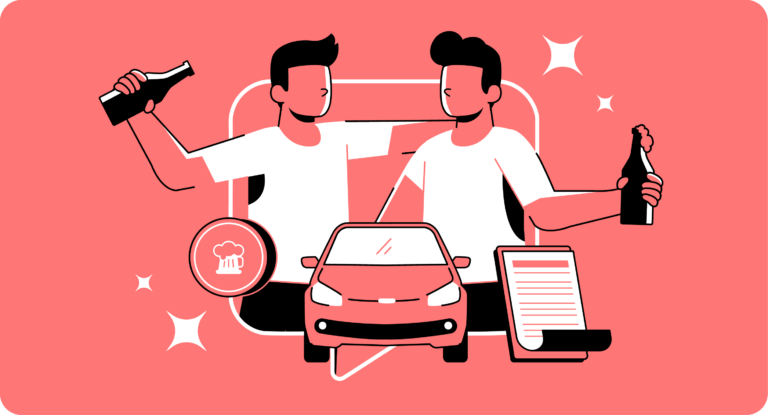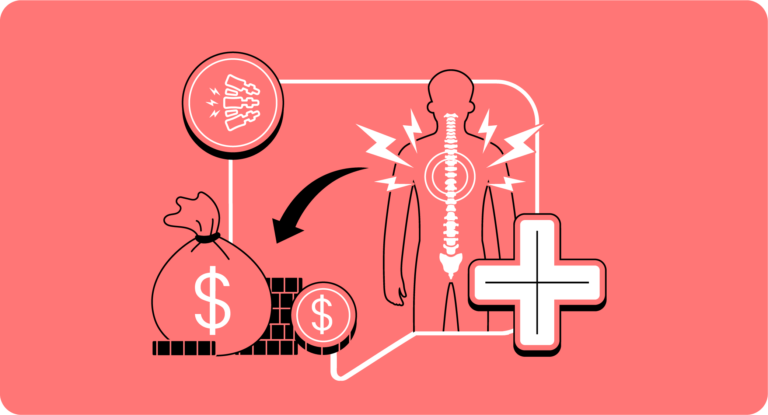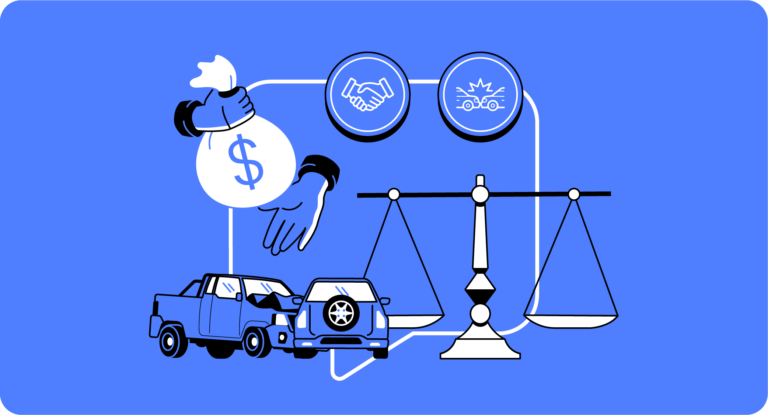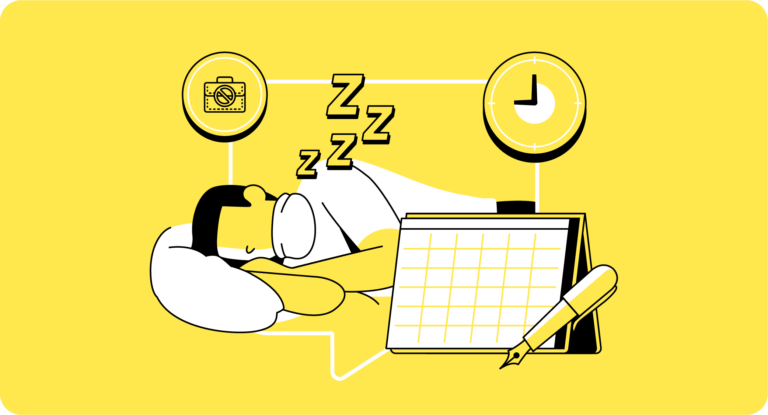Consuming too much alcohol can lead to regret, harm, accidents, and health issues. Even moderate drinking is linked to a higher cancer risk.
No alcohol level is risk-free, but responsible drinking helps. Consider these guidelines for safer alcohol consumption if your group plans to consume.
Keep Track of Your Intake and Recommended Limits
To stay healthy while enjoying alcohol, know how it affects you. Follow the CDC’s guidelines on drinking limits. They suggest no more than 2 drinks a day for men or 1 in a day or less for women.
A standard drink has about 10 grams of ethanol. This is what your body can process in an hour. Your ability to metabolize alcohol depends on several factors. These include age, weight, gender, and health status. Going over these limits can lead to problems. This includes accidents, injuries, and nasty hangovers.
Note
Long-term excess drinking can cause serious health issues. These may include heart disease, cancer, liver problems, and more. Know your limits and moderate your intake.
Use Smart Eating and Drinking Strategies
Eating before and during drinking affects alcohol processing in your body. When you eat, alcohol absorption slows down in the stomach. This moderates alcohol effects, giving you more control over drinking.
To slow alcohol absorption, eat before and during drinking. Here are some tips for managing your alcohol intake better:
- Stay hydrated by drinking plenty of water: This helps counteract the dehydrating effects of alcohol.
- Avoid combining alcohol with sugary or caffeinated energy drinks: They can mask the depressant effects of alcohol, leading you to consume more.
- Steer clear of salty snacks: They can increase thirst, potentially leading to higher alcohol consumption.
By following these rules, you’ll handle social drinking better. It helps prevent excessive drinking and its risks.
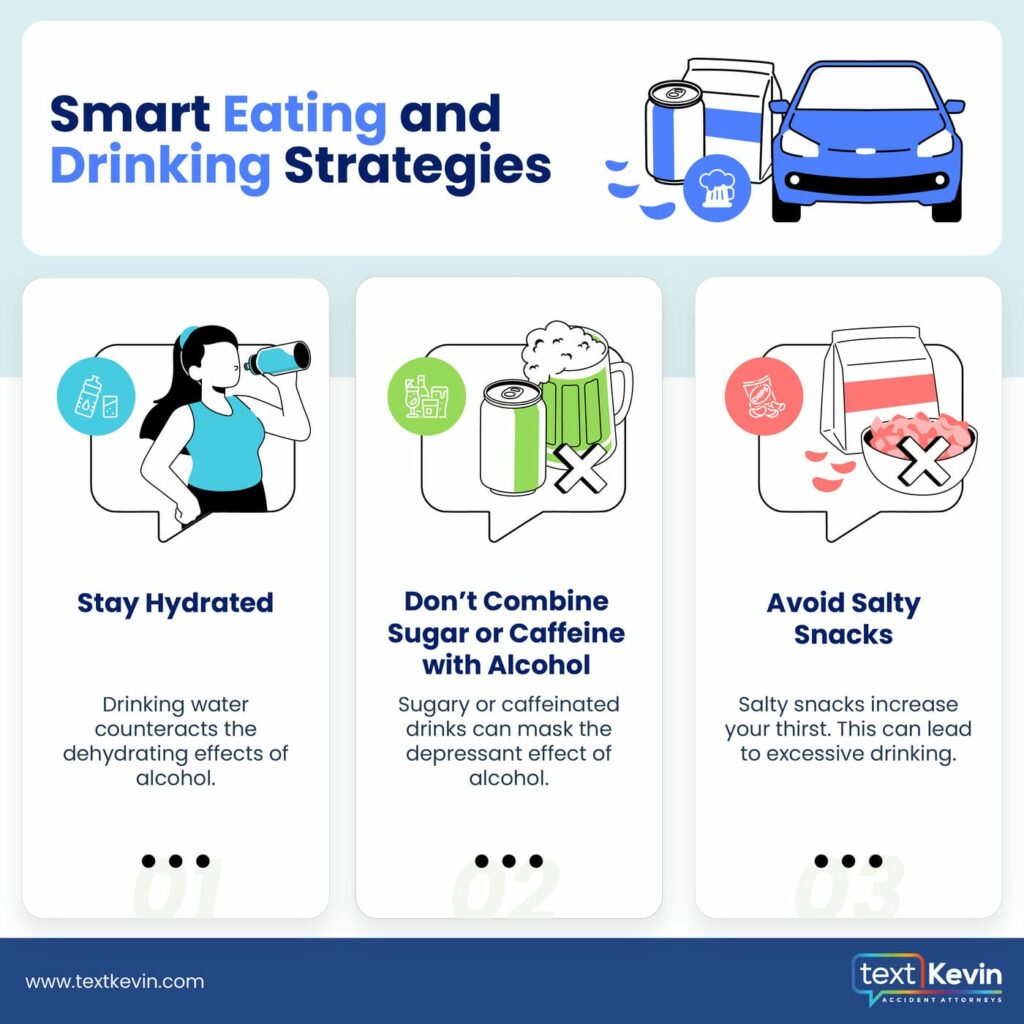
Slow Your Intake of Alcohol
Understanding and managing your blood alcohol content (BAC) is key to responsible drinking. BAC is the alcohol level in your bloodstream, affecting how alcohol impacts you.
Tip
Drinking fast raises your BAC quickly, raising injury risks. Your body can process only one drink per hour. So, pacing matters.
To control your drinking speed and BAC, try these tips:
- Switch between alcoholic and non-alcoholic drinks.
- Start with water to reduce alcohol intake.
- Choose drinks with lower alcohol content.
- Sip slowly instead of gulping.
- Put your glass down between sips to slow down.
By following these tips, you can manage your alcohol intake better and avoid negative consequences.
Choose Safer Social Activities Over High-Risk Drinking
Engaging in binge drinking is risky – over four drinks in two hours. It can lead to injury, risky situations, embarrassment, and alcohol poisoning. Avoid fast-drinking games, shots, or competitions for quick intoxication.
Don’t feel pressured to match others’ drinking speed or amount. Try other activities not focused on heavy drinking. Play pool, dance, or socialize for fun without consequences.
Pro Tip
Avoid mixing alcohol with energy drinks. It hides alcohol’s effects, leading to more drinking, risky behavior, and injuries. Choose safer, controlled ways to enjoy alcohol for well-being and positive social interactions.
Do Not Drink and Drive
Drinking and driving don’t mix. Any amount of alcohol can affect driving skills. Judgment, coordination, reflexes—it all suffers.
More alcohol means a higher accident risk. You endanger yourself and others. In California, laws ban driving over 0.08 BAC if you are 21 years old. If law enforcement pulls you over while you are driving with an illegal BAC, you can be charged with DUI.
Strategies for a Safe Return Home
Planning your transportation ahead of time is a responsible step. It ensures you and your friends can enjoy your outing without risking safety. Consider these strategies for a safe journey back home:
Designate a Driver
Selecting a designated driver keeps everyone safe after a night out. Pick a friend who won’t drink at all. It’s a huge responsibility but necessary for safety. Decide on this before drinking begins.
Budget for a Taxi or Rideshare Service
Sometimes, having a designated driver might not be possible, or you might end up somewhere unexpectedly. In these cases, it’s a great idea to have a backup plan.
Setting aside some money specifically for a taxi or a rideshare service like Uber or Lyft can be a lifesaver. These services are convenient and can take you home safely at any hour.
Remember, it’s much better to spend a bit of money on a ride home than to take unnecessary risks by driving under the influence. Planning this part of your night ahead of time means you won’t have to worry about how you’ll get home safely.
Leverage Public Transport
Public transportation is another excellent option for getting home safely. Before you go out, take a little time to look up the schedules and routes of buses, trains, or trams in your area. Public transport is usually the most cost-effective way to travel, but it’s important to know when the last service runs. You don’t want to miss the last bus or train and be stuck without a way home. Knowing the schedule ahead of time can help you plan your evening accordingly and ensure you have a safe and affordable way to get back.
By making transportation arrangements in advance, you eliminate the temptation to drive under the influence and significantly reduce the risk of accidents. Remember, the decision not to drink and drive is not only a legal obligation but a moral one, prioritizing the safety and well-being of yourself and others on the road.
Making Informed Choices: When to Opt Out of Drinking
Alcohol consumption isn’t suitable for everyone. There are specific circumstances where abstaining from alcohol is strongly advised to protect your health and well-being.
Understanding when to say no to alcohol is not just about personal preference. It’s also about recognizing situations where its effects could be particularly harmful.
Who Should Avoid Alcohol?
- Youth Under 18: For children and teenagers, the safest course of action is to avoid alcohol altogether. The developing brain is particularly susceptible to the negative effects of alcohol. Underage drinking can lead to a range of adverse outcomes, both physically and mentally.
- Pregnant and Breastfeeding Women: There is no safe level of alcohol consumption for pregnant women or those planning a pregnancy. Alcohol can significantly harm the developing fetus, leading to long-term developmental issues. Similarly, alcohol can be passed to an infant through breast milk, making it unsafe during breastfeeding.
- Individuals Taking Medication: Alcohol can interact with various medications, both prescription and over-the-counter. This can potentially lead to harmful effects. Consult with a healthcare provider about the safety of consuming alcohol with any medication you’re taking.
- People Experiencing Mental Health Issues: If you’re dealing with depression, anxiety, or other mental health conditions, it’s advisable to avoid alcohol. Alcohol is a depressant. It can exacerbate symptoms of these conditions, hindering recovery and well-being.
- When Feeling Unsafe or Uncomfortable: If your surroundings or the company you’re in makes you feel unsafe or pressured to drink, listen to your instincts and say no. Your safety and comfort should always come first.
- Athletes and Those Focused on Fitness: Avoiding alcohol can be beneficial for individuals dedicated to physical fitness or athletes in training. Alcohol can impair muscle recovery, dehydrate the body, and affect athletic performance. It can also interfere with the body’s ability to build muscle and recover from workouts effectively.
- Individuals with a History of Substance Abuse: People who have struggled with substance abuse or have a family history of alcoholism should consider abstaining from alcohol. For these individuals, consuming alcohol can pose a risk of developing dependency or relapsing into harmful patterns of substance use.
- Individuals with Certain Medical Conditions: People living with certain health conditions, such as liver disease, certain cancers, or pancreatitis, should avoid alcohol. Alcohol consumption can exacerbate these conditions, leading to further health complications.
- Those Responsible for the Safety of Others: Individuals who are responsible for the care or safety of others, such as parents, guardians, or those in certain professional roles (e.g., pilots, drivers, machinery operators), should avoid alcohol when on duty. Impairment can severely compromise one’s ability to ensure the safety and well-being of those they are responsible for.
Consider age, health, and medication for safe enjoyment. Opting out when necessary benefits health and quality of life. Prioritize safety and seek professional advice when unsure.
Contact Kevin Crockett if You’ve Been Injured By a Drunk Driver
If you or a loved one got hurt by a drunk driver, you should know you’re not alone. Kevin Crockett and the team at Crockett Law Group are here to help. We care about providing support and effective legal assistance.
Kevin Crockett ensures direct communication with clients at all times. You can reach your legal team 24/7 without any hassle. Kevin personally handles each case with care and attention.
Crockett Law Group work on a contingency fee basis. You won’t pay anything upfront. Our payment depends on winning compensation for you.
Connect with Kevin Crockett online or text (714) 492-1725 for legal support and guidance post-accident.

